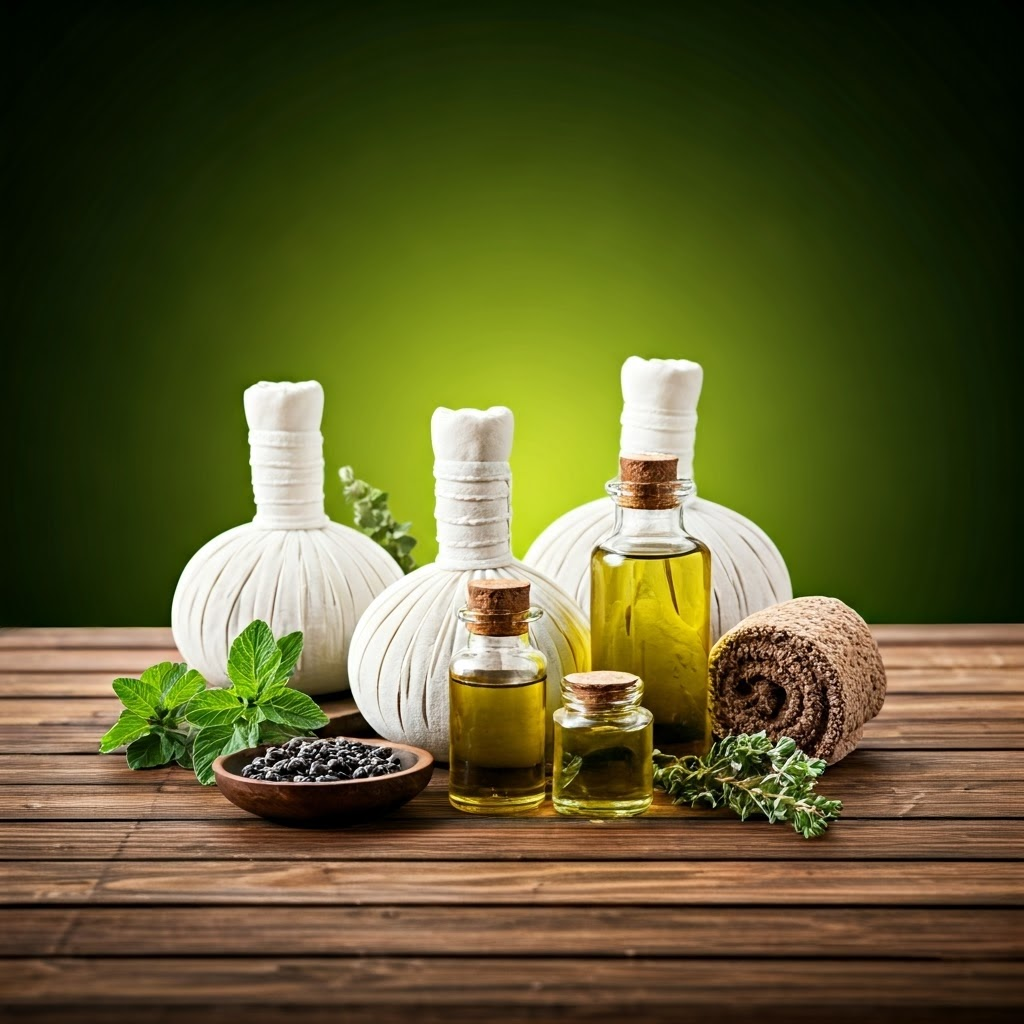Key Highlights
- Explore the link between diet, lifestyle, and eczema flare-ups.
- Discover potential eczema triggers like certain foods and environmental factors.
- Learn about detoxifying your diet to potentially manage eczema symptoms.
- Find out about anti-inflammatory foods that may support skin health.
- Get tips on natural remedies and topical treatments for eczema relief.
- Understand that while detox diets can be beneficial, they may not completely cure eczema.
Introduction
Eczema, or atopic dermatitis, is a skin condition associated with various skin issues, including poor digestive health. It makes your skin itchy, red, and irritated. There is no perfect cure for this condition. However, eczema detox through detoxification and some lifestyle changes may help manage your symptoms. This blog post will look at how detoxification connects to eczema. It will also discuss how certain dietary and lifestyle choices can improve your skin health.
Understanding Eczema and Its Triggers
Eczema is a skin condition that causes inflammation. It happens when the immune system becomes too active. When this occurs, the body reacts strongly to irritants. This overreaction results in itchy skin, red skin, and dryness.
One challenging part of eczema is that triggers, including allergies, can be different for each person. Some common triggers include things in the environment like dust and pollen, as well as harsh soaps that can alter skin colour. Certain fabrics, and even stress can also be a cause. Additionally, incorporating dietary supplements and foods rich in zinc and magnesium, as well as calcium, can help manage skin health. To manage eczema flare-ups, it is important to find out your own triggers.
The Role of Genetics and Environment in Eczema
Atopic dermatitis is the most common type of eczema, including conditions like dyshidrotic eczema. It often starts in childhood and is linked to genetics. If someone in your family has eczema, asthma, or hay fever, you may be more at risk. These genetic factors can affect how your skin protects against irritants, making you more likely to experience eczema symptoms.
The environment also plays a big role in triggering eczema. Things like strong soaps, detergents, or changes in temperature and humidity can harm sensitive skin. Allergens like dust mites, pollen, and pet dander can make the immune system react, causing painful flare-ups.
Being aware of your surroundings and possible irritants at home, work, or outside can help manage your eczema. Knowing your triggers is a key step in preventing flare-ups.
Common Irritants and Allergens to Watch Out For
We've talked about how eczema is a long-lasting skin condition. It causes inflammation and itchiness and can be made worse by different things. Do you know what specific irritants and allergens might worsen this condition? Here are some common ones:
- Fragrances: These can be found in perfumes and cleaning products. They can easily irritate sensitive skin.
- Metals: Nickel is a big problem for people with sensitive skin. You often find nickel in jewelry and belt buckles.
- Detergents and Soaps: Choose products that are fragrance-free and dye-free. They should be made for sensitive skin.
By knowing and reducing your exposure to these triggers, you can help calm your skin. Small changes can really make a big difference for your skin's health.
The Impact of Diet on Eczema
What you eat can really affect your skin, especially if you have eczema. Food doesn’t cause eczema, but some foods can make your flare-ups worse. It’s important to find out which foods trigger your symptoms.
Changing your diet can help manage your eczema symptoms. If you identify and stay away from trigger foods, you can have a diet full of nutrients that help your skin. This can reduce inflammation and help you have healthy skin.
Foods Known to Exacerbate Eczema Symptoms
Some foods might make your eczema worse, and you may not even know it. It’s like they plan to cause those frustrating flare-ups. Dairy products, especially cow’s milk, can be a big one for many people. Watch how your skin reacts when you have milk, cheese, or yogurt.
Gluten, which comes from wheat, barley, and rye, is another common trigger. If your skin gets worse after eating a bagel or a slice of pizza, you might want to try a gluten-free diet.
Don't forget about citrus fruits! They have a lot of vitamin C, but their acidity can bother sensitive skin. Oranges, grapefruits, and lemons can affect how your skin feels, so be mindful of how you react to these fruits.
Anti-inflammatory Foods That Can Help Manage Eczema
Now that we've talked about eczema triggers, let's look at the helpers: the foods that can calm your skin and manage flare-ups. Think of these foods as your skin's best friends.
First, heart-healthy fats in olive oil, avocados, and fatty fish like salmon are good for reducing inflammation. Adding these to your meals may help soothe inflamed patches of skin.
Next, fill your plate with colorful fruits and vegetables. These tasty foods are loaded with antioxidants. They can fight oxidative stress, which may lead to eczema flare-ups.
Finally, include whole grains like brown rice, quinoa, and oats in your diet. These fiber-packed complex carbs help keep your blood sugar steady, which can also lower inflammation.
Detoxifying Your Diet for Better Skin Health
Are you wondering how to improve your diet for better skin? Detoxification here does not mean following strange juices or strict cleanses. It means allowing your body to rest from possible irritants and feeding it with foods that help detoxify naturally.
One useful method is an elimination diet. This involves taking out specific foods from your diet for a short time. Later, you can slowly add them back in. This way, you can find out which foods trigger problems for you. This personal approach can truly make you feel strong!
Eliminating Processed Foods and Additives
Let's be honest. We all like to enjoy chips or sweets now and then. But processed foods can hurt your gut health. These foods often have additives, preservatives, and artificial ingredients. This can make eczema symptoms worse.
When your gut is not healthy, it often shows on your skin. This shows how important it is to eat whole, unprocessed foods. They help keep your gut healthy.
Think about cutting back on processed snacks, fast food, and sugary drinks. Try to eat more fruits, vegetables, whole grains, and lean proteins. A happy gut usually leads to happier skin!
Incorporating Skin-Healing Foods and Nutrients
We've talked about the bad guys and good guys in the food world for eczema. Now, let's look at the nutrients that can help heal and soothe your skin from the inside.
First, we have vitamin E. This strong antioxidant is in almonds, sunflower seeds, and spinach. Vitamin E helps protect your skin from damage caused by the environment and helps your skin cells grow healthy.
Next is vitamin C. This important nutrient helps your body make collagen. You can find vitamin C in citrus fruits, strawberries, and bell peppers. It helps keep your skin elastic and helps heal wounds.
Remember, eating a healthy diet full of skin-friendly nutrients is good for your skin's health.
Lifestyle Changes to Support Skin Detox and Healing
Focusing on your diet is important, but changing your lifestyle can help manage eczema too. These changes may seem simple, but together they can greatly improve your skin health.
Getting good sleep, reducing stress with yoga or meditation, and staying active can all boost your well-being and have a positive impact on your skin. A complete approach is key!
Importance of Hydration and Skin Moisturization
Staying hydrated is very important. It helps your health and keeps your skin barrier healthy. This is especially true when you deal with dryness and itchiness from eczema. Think of your skin barrier like a shield. It helps to keep moisture in and keeps irritants out.
Using a good moisturizer is also key! It helps to strengthen that barrier and gives your skin the hydration it needs. Choose moisturizers that are fragrance-free and hypoallergenic if your skin easily gets irritated.
To manage eczema well, focus on staying hydrated and moisturizing your skin regularly. These are simple and effective steps.
Benefits of Regular Exercise and Stress Reduction Techniques
When we manage eczema, we usually think about things outside of our body. But there is a strong link between our mind and skin. This is why regular exercise and ways to reduce stress are important.
Exercise has many health benefits. It can lower stress hormones, help blood flow, and strengthen the immune system. A strong immune system is key to handling eczema flare-ups.
Sadly, stress can make eczema symptoms worse. So, adding stress reduction methods like meditation, deep breathing, or yoga to your daily routine can help calm your mind and, as a result, calm your skin.
Topical Treatments and Natural Remedies
Topical treatments and natural remedies can help ease the itch of eczema. When paired with the medical treatments your dermatologist advises, these options can enhance your skincare routine.
You can try soothing oatmeal baths and coconut oil. Gentle, fragrance-free creams are also good to use. It’s important to find what works best for your skin and gives you relief during flare-ups.
Safe Detoxifying Skincare Products
The world of skincare can feel like a lot, especially when you want safe and effective products for skin with eczema. When you want skincare that helps detoxify, choose gentle and fragrance-free products made with natural ingredients.
Look for cleansers and moisturizers that do not have harsh chemicals, artificial dyes, or parabens. These things can harm your skin’s natural balance. Picking products for sensitive skin or ones that say they are hypoallergenic can be a good way to start.
Always do a patch test before using any new product on your whole face or body. Put a small amount on a hidden spot, like the inside of your forearm. Wait 24 hours to see if there is any irritation.
Homemade Remedies to Soothe Eczema Flare-ups
Looking for relief from eczema flare-ups without using strong chemicals? Your kitchen might have the solution! There are many natural ingredients that can help calm inflamed and itchy skin.
For example, a cool oatmeal bath can be very helpful. Just grind some plain oatmeal into a fine powder and add it to your bathwater. Oatmeal has anti-inflammatory and moisturizing actions that can ease itching and dryness.
Another helpful kitchen item is coconut oil! It acts as a natural moisturizer that can calm and hydrate dry, irritated skin. Just remember to use a little bit, as a small amount is all you need.
Conclusion
Eczema can be managed well with a complete approach. This includes making changes to your diet, lifestyle, and skincare. First, know what triggers your eczema. Then, choose anti-inflammatory foods and detox your diet to help your skin heal. Staying hydrated, exercising regularly, and reducing stress are also important for healthy skin. Using safe skincare products and natural remedies can give you relief from eczema flare-ups. Remember, everyone’s experience with eczema is different. So, find what works best for you. Keep up your efforts and talk to a dermatologist for advice on how to manage your eczema effectively.
Frequently Asked Questions
Can detox diets completely cure eczema?
Detox diets can have health benefits and may help reduce eczema symptoms for some people. However, they don't guarantee a cure. Eczema is a complicated condition. Dietary changes are only one part of a larger plan to manage it.



